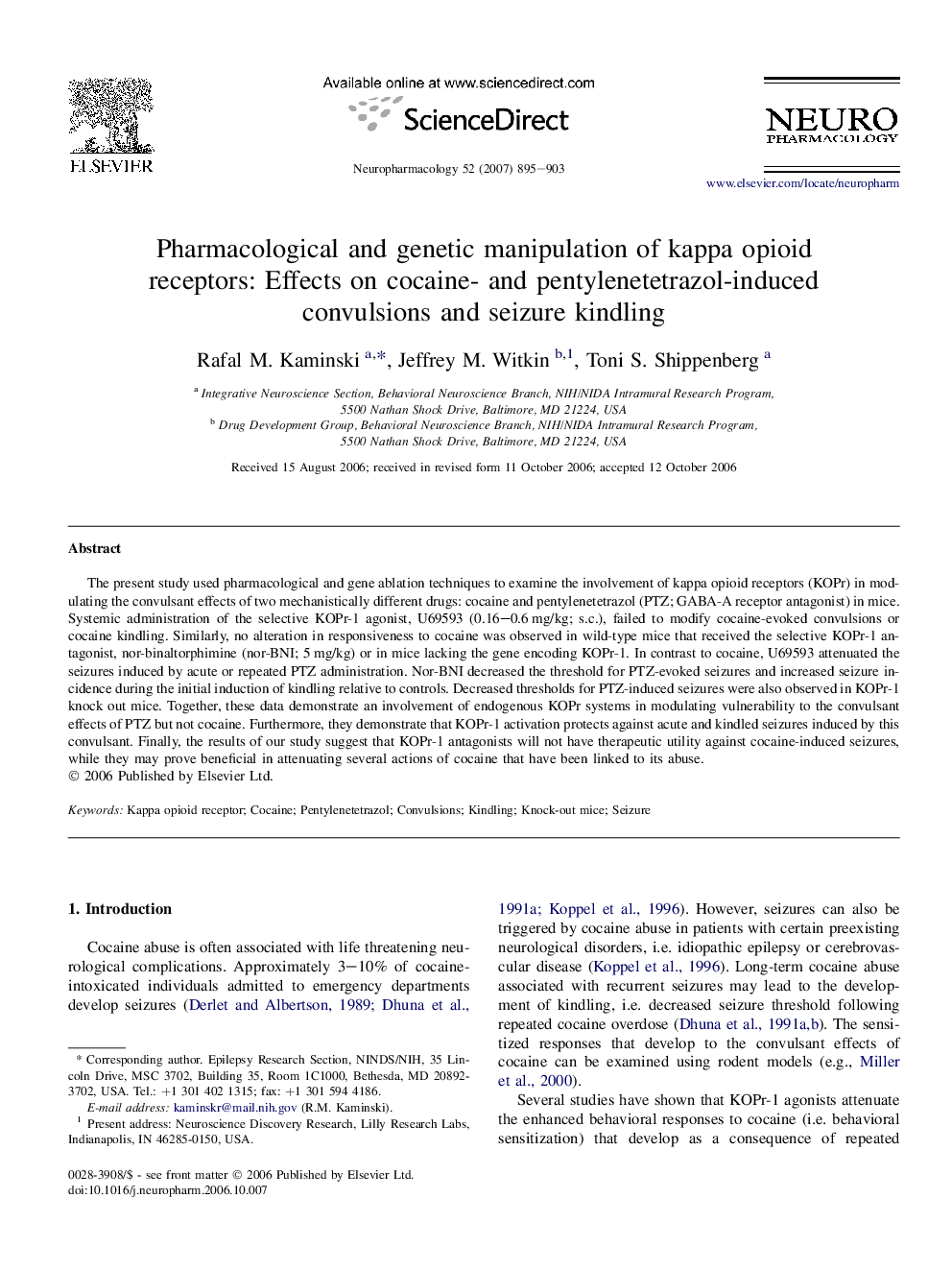| Article ID | Journal | Published Year | Pages | File Type |
|---|---|---|---|---|
| 2495323 | Neuropharmacology | 2007 | 9 Pages |
The present study used pharmacological and gene ablation techniques to examine the involvement of kappa opioid receptors (KOPr) in modulating the convulsant effects of two mechanistically different drugs: cocaine and pentylenetetrazol (PTZ; GABA-A receptor antagonist) in mice. Systemic administration of the selective KOPr-1 agonist, U69593 (0.16–0.6 mg/kg; s.c.), failed to modify cocaine-evoked convulsions or cocaine kindling. Similarly, no alteration in responsiveness to cocaine was observed in wild-type mice that received the selective KOPr-1 antagonist, nor-binaltorphimine (nor-BNI; 5 mg/kg) or in mice lacking the gene encoding KOPr-1. In contrast to cocaine, U69593 attenuated the seizures induced by acute or repeated PTZ administration. Nor-BNI decreased the threshold for PTZ-evoked seizures and increased seizure incidence during the initial induction of kindling relative to controls. Decreased thresholds for PTZ-induced seizures were also observed in KOPr-1 knock out mice. Together, these data demonstrate an involvement of endogenous KOPr systems in modulating vulnerability to the convulsant effects of PTZ but not cocaine. Furthermore, they demonstrate that KOPr-1 activation protects against acute and kindled seizures induced by this convulsant. Finally, the results of our study suggest that KOPr-1 antagonists will not have therapeutic utility against cocaine-induced seizures, while they may prove beneficial in attenuating several actions of cocaine that have been linked to its abuse.
